|
|
| |
|
 We do news right, not fast
We do news right, not fast
Note: This blog expresses only the opinions of the blog owner,
and does not represent the opinion of any organization or blog
that is associated with The Golden Rock.
|
|
Archive for the ‘review’ Category
Sunday, June 27th, 2010
It’s been a slow news week, and a time-deficient week as well, so I will be using offering two short reviews to the HK films I’ve seen recently, at least one of which has already been (or will be) talked about on the latest episode of East Screen/West Screen:
BREAK UP CLUB (Hong Kong, 2010, Dir.: Barbara Wong):
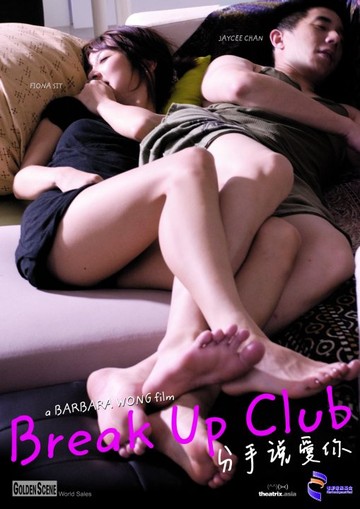
Love can suck, and Barbara Wong wants you to know that she wants you to think that. This mix of mockumentary and cinema verite stars two of Hong Kong tabloid’s favorite young threesome - Jaycee Chan and Fiona Sit - as an on-again, off-again couple that keeps coming back because Jaycee found a magical website that would bring back Fiona if he breaks up a couple by putting their names in the website. But even a magical website can’t keep his lovely girlfriend around, because he’s a terrible boyfriend who likes to waste time and confuses the lack of a real job as having testicles. So when a talented, well-traveled, and most likely well-off graffiti artist comes to town to sweep his girlfriend away, who else does he have to blame?
Of course, Fiona Sit’s character also has her flaws, particular her typical Hong Kong girl princess-y attitude and how she deals with the newfound relationship with the graffiti artist, but at least Sit gives off an appeal that explains why she would appeal to Jaycee (and the audience) so much. Wong and co-writer Lawrence Cheng, on the other hand, forgot to give nearly as many redeeming qualities for Jaycee, who had the misfortune of trying to make his character appealing by acting halfway into stupid. The filmmakers succeed mostly into making Jaycee a convincing loser, but forgot to remind the audience why Fiona Sit would want anything to do with him and lets the magical website do the dirty work for them instead.
Nevertheless, the two main actors are good together, especially considering the fact that they improvised their dialogue together. It’s obvious that they’re at least good friends, and they’re quite natural onscreen. This makes it easier to pinpoint who should be blamed for the way the film turned out: Writer-director Barbara Wong. Not only did she start out with a halfhearted attempt to insert herself into the film as herself trying to make a film with “true” stories, she essentially makes herself the main character for the final 15 minutes of the film that doesn’t actually change anything about the plot. Instead, her little cameo only marks a rather unconvincing attempt to undo the flaws in her “mockumentary” style, and to show how clever she is with her little unnecessary foreshadowing tricks. It’s truly annoying in its self-indulgence, and it alienates the audiences that she has touched in the first 90 minutes - at least the ones that don’t think these two miserable young people deserve each other.
As I said in the podcast review: Turn off the movie after 95 minutes, you would’ve seen a passable - albeit flawed - romantic comedy. If you choose to approach the last 15 minutes for closure, do so at your own risk.
THE LEGEND IS BORN - IP MAN (China/Hong Kong, 2010, Dir.: Herman Yau)
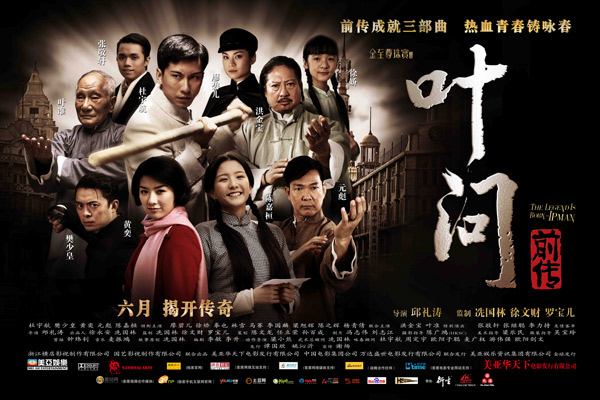
THE LEGEND IS BORN follows the formula of how to shamelessly cash in on a phenomenon to the t: Take character from hit film, find the actors from original hit film who only care more about the paycheck than the character overlap, pack as much as what made the original films popular as possible, find a director who can shoot fast, cheap, and efficient, then connect it to the original films even when no one asked them to. THE LEGEND IS BORN is the (probably completely)fictional take on the Wing Chun master’s life that not only shows its commercial trappings with blatant reverse racism, but also by casting actors only based on their fighting ability and/or whether they were in the Donnie Yen IP MAN films or not.
Herman Yau is obviously such a director-for-hire in this case that he lets Dennis To, who apparently did something in the IP MAN franchise, leads the film with absolutely zero leading man charisma and very little acting ability. He’s a fine martial artist, but I have an inkling that he’s only the choice for leading man over Louis Fan, who actually ACTS in the film, because Fan played a bad guy in the first film. Yau moves the camera well enough and moves the film at a smooth pace, which pretty much makes him the right man for the job.
Instead, it’s obvious that it was the producers (including financial mogul/Wing Chun enthusiast Chuckley Sin) who demanded the film be filled with 1) foreigners who insult the young Ip Man for being Chinese, 2) Japanese villains who are very Japanese and hate people who are very Chinese. These forms of reverse racism are committed so casually that you’d think the film might be made in the 80s, and I’m embarrassed to be from the culture that actually encourages this kind of crap.
As generic as the rest of the film is, the fighting is good, and that’s about all I have to say that’s good about THE LEGEND IS BORN.
There’s also another Chinese-language film that I watched within the last week, but I’m saving that for a full-length review on the site.
Posted in review, Hong Kong | No Comments »
Monday, April 12th, 2010
Here we go, another five Asian films viewed at the Hong Kong International Festival 2010.The Blue Mansion (Singapore - 2009), Directed by Glen Goei
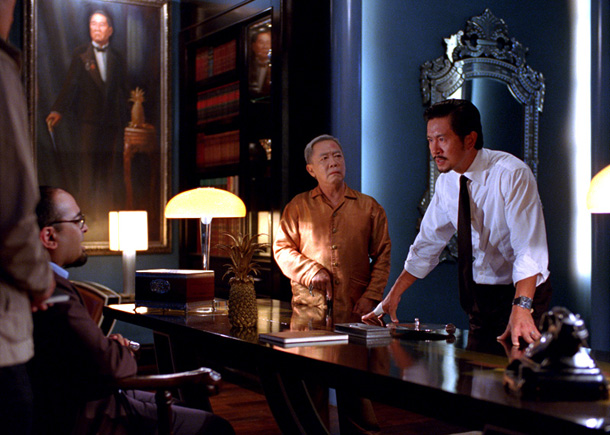
This dark comedy from Singapore mixes the supernatural and an Agatha Christie mystery, and interestingly, it’s just about completely in English. That might be the problem, as the actors did not have the comic timing to deliver some of the nastier punchlines, and there’s no character that’s actually likeable enough to connect with - not even the dead guy. Interesting attempt, but not quite a success.
Sawako Decides (Japan - 2009) - Directed by Ishii Yuya, starring Mitsushima Hikari
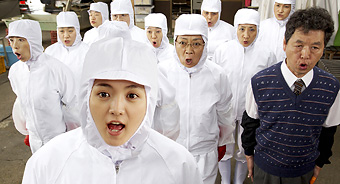
Yuya Ishii is back with this Pia Scholarship film after his win at with Bare-Assed Japan. It’s a hilarious, deadpan comedy that Ishii is no stranger to. Add that with a great performance by Mitsushima Hikari of Love Exposure, and you’ve got one of the funniest Japanese comedies of the year. Response wasn’t as enthusiastic as I had hoped. Maybe I just really dig the dry humor.
I’m in Trouble! (South Korea - 2009) - Directed by So Sang-Min

This dry Korean comedy, on the other hand, doesn’t work nearly as well as other comedies in this style. It starts off with a not-so-likeable lead and his not-so-important problems with the ladies (which he screwed up himself anyway), and director So Sang-Min expects us to automatically care for him. Just because he’s an artist doesn’t make him immediately worth caring about. Still, not a total loss, with some funny moments, and some of the performances are quite…well, likeable.
Tokyo Onlypics (2008 - Japan) - Directed by Mashima Riichiro, etc.
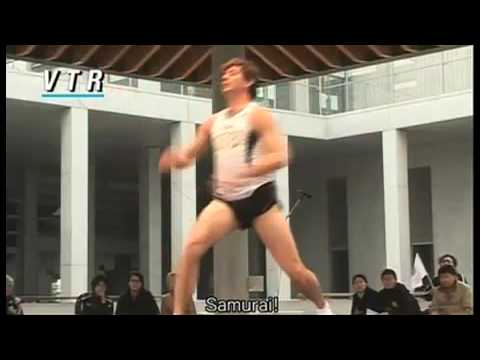
As one might expect from an anthology mixed with animation and live-action, this parody of international sports events (which opened in Japanese theaters the same day as the opening of the Beijing Olympics) is somewhat inconsistent in quality. But when it’s on its game, it is as seriously funny as it is irreverent. Some of the sketches go on too long after it delivers the laughs (the samurai calling one above included), but events like the sms texting and the mom throwing ones are the funniest comedy sketches I’ve seen this year. This version is apparently a shortened version from the 130-minute Japanese version, which is a wise choice, as its 117-minute length was just perfect.
The Actresses (2009 - South Korea) - Directed by E, J-Yong, starring Youn Yuh-Jung, Choi Ji-Woo, Ko Hyun-Jung, Kim Ok-Bin, Lee Min-Sook, Kim Min-Hee
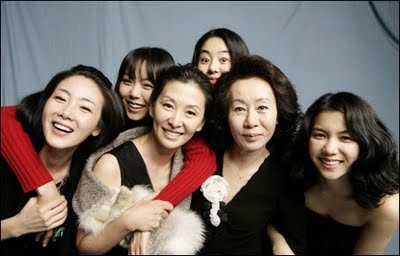
For anyone who has no idea who these people are, the film will simply be an interesting experiment exploring the real persona of actresses. Those who have at least a vague idea of these people will have a far better time as this mockumentary (written/improvised by the 6 actresses) slyly plays on the stars’ respective persona and what it’s like to be a star. Still, it still feels insignificant, as there’s not really much of a story (the second half consists almost entirely of the six stars sitting around talking). Nevertheless, the fact that it still works is an achievement already.
Next time, an anti-war film, Bollywood, and more Yuya Ishii.
Posted in festivals, review, Hong Kong | 2 Comments »
Saturday, April 10th, 2010
As you might have been following on my Twitter, I have been spending quite a bit of time at the glorious Hong Kong International Film Festival. This year, excluding the Lung Kong retrospective I have yet to attend, I watched a record number of 28 films between March 20th and April 6th.

This is what madness - and my dining table - look like
Out of the 28, 20 of those are Asian films (and I’m counting Israel in Asia because NHK World says so), and I will provide brief reviews for them here - 5 at a time.
1) A Better Tomorrow (Hong Kong, 1987) - Directed by John Woo, Produced by Lung Kong
This is the first time I’m watching the gangster classic film on the big screen (as part of the festival’s focus on Lung Kong), and it’s every bit as enjoyable as one can expect. I’ve seen this movie and the references to it throughout the years many times, and I’m surprise to hear the audience just as involved with it as if they were watching it the first time. A true Hong Kong cinema classic.
2) A Brand New Life (Korea, 2009) - Directed by Ounie Lecomte, Produced by Lee Chang-Dong
This aut0biographical debut film by Korean French director Ounie Lecomte has a stunning performance by the young Kim Sae-Ron, but it doesn’t quite escape the stablish cinema verite style of her producer. The life in the South Korean orphanage ultimately goes through the motions and is ultimately a little too much into its own detached style.
3) Ajami (Israel, 2009) - Directed by Scandar Copti and Yaron Shani
This film about the Palestinian-Israel relationship is what Quentin Tarantino might have made without the gimmicky obsession with old movies and self-indulgent dialogue. It’s a frequently powerful examination of different types of people in the region, though its non-linear storytelling can be disorienting at points. It’s an ambitious film and that makes it worth watching, even though it doesn’t really deliver in the end.
4) Monga (Taiwan, 2010) - Directed by Doze Niu
Doze Niu’s follow-up to What on Earth Have I Done Wrong is a million times more ambitious and even more engaging. However, it doesn’t follow through with the burst of adrenaline it delivers in the first 30 minutes and falls back on unintentional homo-eroticism, gangster clichés, a hooker with a heart of gold, and the idealist talk about brotherhood. At least it looks great with really impressive production values.
5) Last Train Home (Canada, 2009) - Directed by Fan Lixin
This compelling documentary by former Chinese journalist Fan Lixin looks at the lives of migrant workers who make the trek every year from their jobs in the big city back to their rural homes during Lunar New Year. It’s not only a look at the migration itself, but also a look at how rapid development and centralization of industry in China has broken up families. Starts off slow, but gets much, much better later on.
That’s part 1. Next is some Yuya Ishii, a Singaporean dark comedy, and of course, a little Japanese animation.
Posted in festivals, review, Hong Kong | No Comments »
Monday, January 18th, 2010
Since everyone (including lovehkfilm’s own readers) are doing their best of the decade blog, I figure I shouldn’t miss out on the fun. Panasian is a fairly abstract word, but for the purposes of this list, they’ll simply films made in Asia from 2000-2009 and cannot qualify for the lovehkfilm awards (hence Lust, Caution and Hero’s exclusions).
And now, the disclaimer: I watch a lot of films, but like anyone who doesn’t get to travel to film festivals worldwide or have that much time to watch every Asian film existed, I missed out on a lot of stuff. I also have my own biases. I don’t care for Achitpatong, Kim Ki-Duk, or Hong Sang-Soo, which means those art films one might’ve seen on those best of the decade list by western organizations will be missing here. Mainly, they’re not because I really don’t like them - I just couldn’t find the time.
Hence, this list is totally interactive. This means you’re welcome to offer your own list or even talk about my picks. But I can say it’s unlikely to find a definitive top 10 list out there, since 1) Everyone has different tastes, and 2) there were so many films that I had to expand my list to 25.
My criteria: The films have to be good, and if they served some kind of bigger purpose, it’s more likely I would put them here than some award bait film, like Hula Girls. I liked the film, and it swept a lot of the awards in Japan that year, but I hesitantly kept it off the list because it wasn’t as notable as some of the other films I’ve picked here.
So, for part 1 - numbers 20-25, and the 20 special mentions to tell you what got left out:
Special Mentions:
The Assembly (China)
Life is Cool (Korea)
Summer Wars (Japan)
The Girl that Leapt Through Time (Japan)
Suite Dreams (Japan)
Air Doll (Japan)
Fine, Totally Fine (Japan)
The Chaser (Korea)
I Just Didn’t Do it (Japan)
Seagull Diner (Japan)
The Good, the Bad, the Weird (Korea)
A Bittersweet Life (Korea)
President’s Last Bang (Korea)
Tokyo Sonata (Japan)
Memories of Matsuko (Japan)
A Stranger of Mine (Japan)
Linda Linda Linda (Japan)
Il Mare (Korea)
My Dear Enemy (Korea)
God Man Dog (Taiwan)
And now, 20-25:
25. Love of Siam (2007) - Thailand - Directed by Chookiat Sakveerakul - LoveHKFilm review

Note: This refers to the director’s cut, which runs just under three hours.
The center of this Thai film is a gay romance between two teenagers, but it’s about a lot more than that, and it works on those other levels too. Despite some awkward directing, the film runs surprisingly fluid, and the acting is uniformly strong. A Thai gay romance is rare enough already, but one that is this good is even more rare.
24. Island Etude (2007) - Taiwan - Directed by En Chen - LoveHKFilm Review
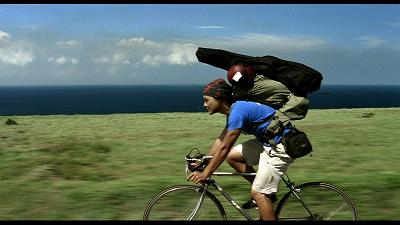
People might remember this movie as the film that replaced Lust, Caution as Taiwan’s representative at the Academy Awards when it was caught in bureaucratic limbo, but it’s one of the best road movies to come out of Asia in the last decade. As a travelogue of Taiwan, Island Etude was far more qualified to represent its home country than the Panasian effort of Lust, Caution (which only qualified for the HK decade film list under the lovehkfilm rules).
23. Departures (2008) - Japan - Directed by Yojiro Takita - LoveHKFilm review.
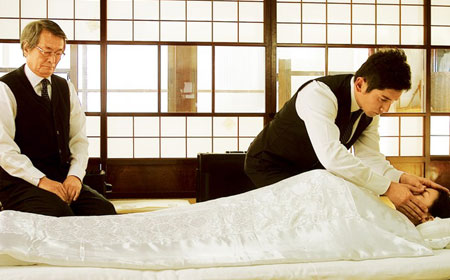
Theoretically, the only Asian film to win Best Picture at the Academy Awards in the last decade ought to be at the top of the list, except…not. Departures is a commercial film calculated to make you cry and laugh at the right times, and when it succeeds the way it does here, it shouldn’t undermine the film. It’s still flawed at points, and it might not have really deserved that Academy Award, but what’s here is commercial Japanese cinema at its best.
22. City of Life and Death (2009) - China - Directed by Lu Chuan - LoveHKFilm review.
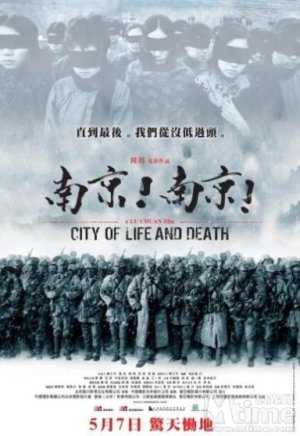
Lu Chuan’s big-budget recreation of the Nanjing Massacre is one of the most controversial Chinese movies of 2009 for its subject matter. In fact, one of my Chinese classmates called it the most sickening film of the year, so that should tell how polarizing the film is even in its own country. Politics and perspectives aside, City of Life and Death is just good filmmaking, with beautiful black-and-white cinematography, striking images, top-notch production values, and finally a take on world war II that doesn’t feel like nationalist propaganda. Not a film I’d visit again soon, but not a film to deny simply based on its subject matter, either.
21. Fish Story (2009) - Japan - Directed by Yoshihiro Nakamura

I can’t possibly think of a better answer to how a punk song from the 1970s save the world from impending disaster than Yoshihiro Nakamura’s Fish Story. Of course, the credit also goes to novelist Kotaro Isaka for the story, which unassumingly sets up seemingly ordinary stories before putting them together in an amazing reveal, but the tour-de-force final minutes where the entire story plays out is pure cinematic genius. And the song is pretty damn good too.
20. The Host (2006) - South Korea - Directed by Bong Joon-Ho - LoveHKFilm review.

Bong Joon-Ho’s monster flick remains the highest-grossing in Korean history because it knows that unlike movies that bank on nationalist sentiments to support local films, it has to do more than boast special effects. The Host is funny, scary, and even a bit touching, and if you can’t even ask for that in a blockbuster flick - whether it’d be about dragons, robots, or huge tidal waves - then the terrorists would’ve won.
Tomorrow: Numbers 11-19. I miscalculated the separation, and this is what happens.
Posted in feature, review | 1 Comment »
Friday, October 23rd, 2009
I spent my last weekend at this place:
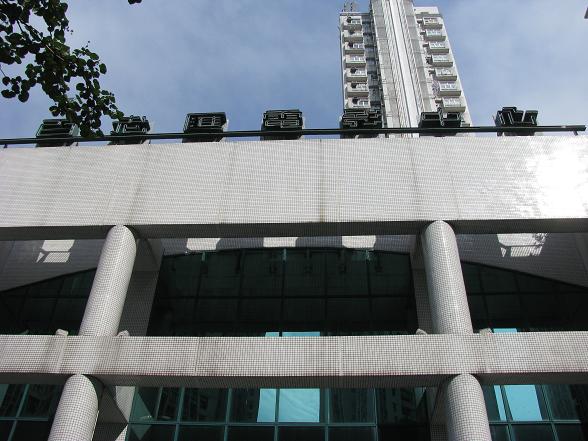
This is the Broadway Cinematheque, one of the three venues for the Asian Film Festival. I saw a total of three films on Saturday and Sunday here.
One of them featured a Q&A with this man:
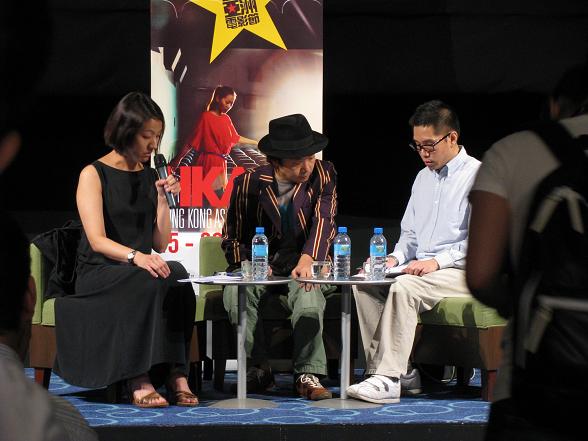
That would be director Sion Sono, whose Love Exposure is easily one of the great cinematic achievements of 2009, and the subject of this year’s HKAFF retrospective.
That brings us to the latest set of reviews:
The Housemaid (1960, South Korea, Dir: Kim Ki-Young): Certainly seeming dated almost 50 years, this deliciously trashy classic melodrama did earn some laughs at the screening, but that doesn’t discount the power of director Kim Ki-Young in creating this beautifully shot and often unpredictable femme fatale thriller about the worst housemaid in the world.
Ain’t No Tomorrows (2008, Japan, Dir: Yuki Tanada): Pure love this ain’t. Yuki Tanada’s adaptation of the manga about three high school boys’ first trip into sex is light an enjoyable exploration into the minds of reckless youth. Running a brisk 75 minutes, the stories are told in the most basic fashion, and it’s also the most effective. A great antithesis to those youth pure love stories on Japanese TV.
Be Sure to Share (2009, Japan, Dir: Sion Sono): Sono’s follow-up to Love Exposure takes almost a complete 180, dealing with the death of Sono’s father. A gentle mediation about family and death, Sono’s fans may find this a little dry, but one can’t help but admire his almost primitive expression of his love for his father in the film. An interesting addition to his filmography, but it won’t be his most memorable.
Note: I was asleep for a large part of the first half because of allergy medicine, not the quality of the film.
Talentime (2009, Malaysia, Dir: Yasmin Ahmad): The surprise of the festival for me, this delightful and touching film about contestants of a school talent contest and their families is an entertaining exploration of the myriad of religious and ethnic presence in the country, as well as young love. The sometimes heavy melodrama is balanced by Ahmad’s naturalistic handling. Too bad there was less than 20 people at the screening.
Flower of Kim Jong-Il (2008, South Korea/USA/France, Dir: NC Helkin): This documentary about human rights violationby North Korea as told by those who experienced them has some chilling testimonies that shed light on the horrors in the most isolated country in the world, but Helkin’s use of interpretative dance throughout distract from the focus. It almost undermined the testimonies themselves, making it not a very good documentary.
Bicycle Sighs (1990, Japan, Dir: Sion Sono): Sadly, this may be the only Pia Scholarship film that I don’t like. I’ve never fell asleep at a movie, only to wake up and find the audience as confused as I was. Sono fills the film with metaphors and strange behaviors, but I must’ve been too shallow to be able to decode them all. Besides, it should’ve ended 30 minutes before it really did. A truly strange feature debut for Sono.
Coming up: Taiwanese films Finding Her and How Are You Dad, as well as Summer Wars and Old Partner. It’s going to be a busy weekend.
Posted in festivals, review | 3 Comments »
Saturday, October 17th, 2009
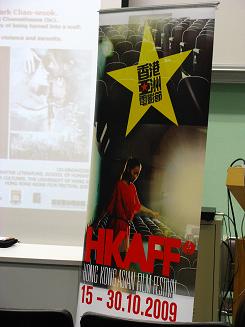
It’s October, which means it’s time for the Asian Film Festival again. This year, I’m watching 22 films:
Thirst
Crows Zero II
The Housemaid
Ain’t No Tomorrows
Be Sure to Share
Talentime
Flower of Kim Jong-Il
Bicycle Sighs
Finding Her
Summer Wars
How Are You, Dad
Her Dear Old House
Old Partner
Asian Shorts 3 (including Edmund Yeo’s Kingyo. Sorry, I couldn’t make time for Woman on Fire Looks For Water)
Mother
Air Doll
Dark Harbour
Beijing is Coming
Pastry
Rabun
At the End of Daybreak
Seven 2 One
I’ve already watched two, including opening film Thirst. But before the movies, there were some pre-screening activities.
First: A talk at the University of Hong Kong featuring Tian Zhuangzhuang and Park Chan-Wook, directors of the festival’s two opening films, The Warrior and the Wolf and Thirst.
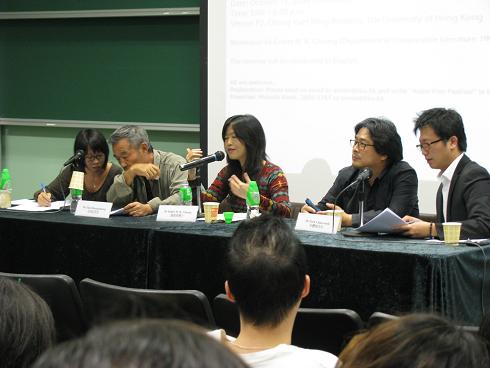
From left to right: Tian’s translator (a grad student at HKU who seemed to be very nervous), Tian Zhuangzhuang, Moderator representing the HKU Comparative Literature Department, Park Chan-Wook, and his translator.
With everyone needing translation, there wasn’t as much enlightening information from neither of the directors. Also, the chaos of people surrounding the directors after the talk meant I almost got my Thirst ticket signed by Park.
Almost means no.
After dinner, it was off to IFC to check out the opening ceremony, which took place between the two opening film screenings:

Charlie Yeung, the “ambassador” of the film festival, showed up on time for some media interview. “On time” in this case meant early, because the ceremony started 20 minutes late.
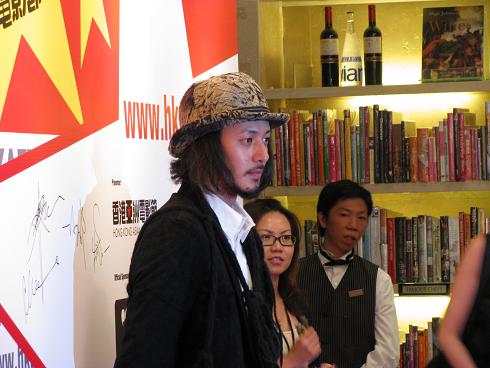
Every shot I took of Jo Odagiri has a flash on his face. He also stood alone on the stage with that expression the entire time.
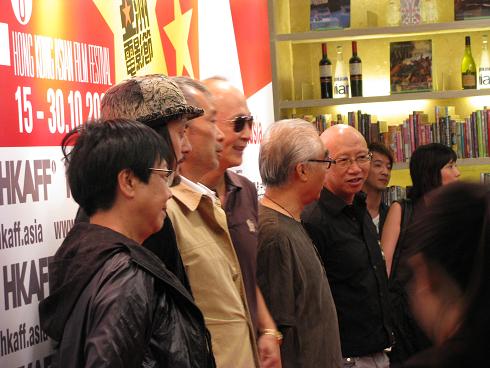
People I recognize: Ann Hui (left, and doesn’t recognize me, despite doing an entire profile on her), Jo Odagiri (left 2), Tian Zhuangzhuang (left 3), and Lawrence Lau (right)
With the ceremony running late, it also meant that the film started 20 minutes late as well. At least it was finally time for the movies!
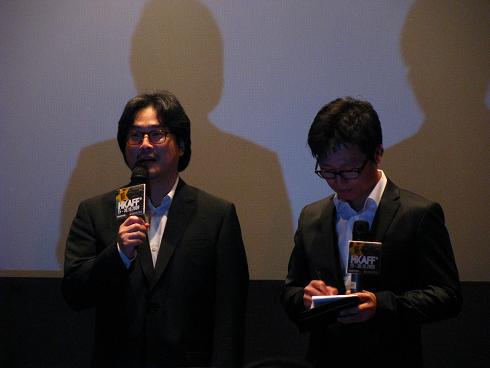
For the inflated ticket price, at least I got to see Park Chan-Wook (again) and got a extra small size t-shirt. I’m definitely not an extra small.
And now, for the movies I’ve seen so far:
Thirst (2009, Korea, Dir: Park Chan-Wook): After a slight stumble with I’m a Cyborg, But That’s OK, Park makes a glorious return to extreme cinema with this surprisingly fun (and funny) fantasy about a priest that turns into a vampire. Park’s signature musical and camera style is here, and they’re impressive as always. The violence is a little much at times, but all in all, the most “fun” Park film since Oldboy. It’s not a perfect film, but nevertheless a great cinematic experience. Kim Ok-Vin is a new name to watch out for.
Crows Zero II (2009, Japan, Dir: Takashi Miike): A sequel that’s a little too conscious of its status, Miike and his writers amp up the drama here in an attempt for a grander follow-up to their wildly fun predecessor. The result is a little underwhelming, as they wait until the very end to give the fans what they want. The fun does finally arrive at the end, but the road there can be sluggish at times.
And that’s it for now. This weekend is the Korean classic The Housemaid, Sion Sono’s Be Sure to Share (with a talk with Sion Sono in attendence), and the Japanese indie film Ain’t No Tomorrows.
Until then, let me know if you plan to stalk me at the cinemas. I’ll buy you a cup of coffee. I’ll need some anyway.
Posted in festivals, review, Hong Kong | 3 Comments »
Tuesday, September 15th, 2009
- Lovehkfilm has updated with reviews from Boss Kozo. In this update, Kozo writes about the trashy, but entertaining Kung Fu Chef, the teen flop Trick or Cheat, Sion Sono’s epic masterpiece Love Exposure, and Miki Satoshi’s Turtles Are Surprisingly Fast Swimmers.
- Hitoshi Matsumoto’s Symbol opened in Japan this past weekend on 242 screens (roughly the same amount of screens Dai Nipponjin opened on) and made 133 million yen, which is only 45.6% of Dai Nipponjin’s opening weekend. With an even more mysterious promotional campign than his first film, Matsumoto’s film doesn’t seem to be aiming for a large commercial audience anyway.
- In Korea, the Hindi-language film Black has become quite a hit, despite it being a four-year old film. After three weekends, it already has 700,000 admissions, and may get to the million mark in two weeks. I’ll keep keeping track of it.
- The Chinese TV/film authority SARFT has released new guidelines banning commercials for certain products and limiting the amount of ads during a program. No big deal for me, since such regulations is quite normal everywhere, especially for things like tobacco products.
I read a report that implies these regulations were made in time for the PRC’s 60th anniversary, but with these regulations not coming into effect until January, it doesn’t seem likely that this is the case.
- Korean female Park Chan-Ok, who worked under Hang Sang-Soo as his assistant director, finally sees her second film Peju coming out in theaters, despite the fact that it was announced 4 years ago.
- The Seoul International Drama Awards were given out last week, with the Grand Prize going to Chinese drama Memoirs in China. Dramas from Europe also took home multiple awards.
- It’s reviews time! Variety’s Derek Elley reviews the Venice closing film Chengdu, I Love You, which features a short film from Fruit Chan and one from Chinese rockster Cui Jian. Then Ronnie Schieb reviews the Montreal World Film Festival Best Director winner Villon’s Wife.
And lastly, Screen International’s Tim Grierson reviews the American cut of Ong Bak 2, and strangely doesn’t make mention of its open ending. Did they get a different version in the States?
- The American producers who were accused of bribing Thai government officials to run the Bangkok International Film Festival have been convicted for conspiracy and money laundering. They plan to appeal the ruling.
- And under “Film festivals in Japan” news, a 16-minute set of footage from James Cameron’s Avatar will be shown at the Tokyo International Film Festival. No word whether this is the same footage shown on “Avatar Day” around the world last month, despite the report writing that it will include unseen footage, though it runs roughly the same length.
Japanese film distributor Only Hearts has bought Mexico’s representative at the Academy Awards and it’ll be shown at the Latin Beats Festival in Tokyo this week.
Posted in TV, festivals, Thailand, India, China, review, Hong Kong, Japan, news, South Korea, box office | No Comments »
Tuesday, September 15th, 2009
Whoa, it’s a news post! You have Tropical Storm Koppu to thank for that.
First off, the latest episode of East Screen/West Screen is up. This time, Paul and I talk about Trick or Cheat, Sophie’s Revenge, realistic romance movies, and Hong Kong’s representative at the Academy Awards.
- And as I predicted about Prince of Tears, the controversy has already started. Just a day after we recorded the podcast, Taiwan’s Government Information Office has requested their NT$10 million subsidy back if it remains to be HK’s representative. Yonfan has also responded, saying that he would rather give back the money. He can probably afford it anyway.
- No HK box office figures yet, but South Korea’s film council already has the weekend stats up. The melodrama Ae-Ja takes the top spot in its opening weekend, as Take Off adds another 321,000 admissions (with 63,000 of those going to the new director’s cut.). Meanwhile, Haeundae has passed Silmido and is now aiming for Taegukgi with 11.18 million. The Case of Haewon Suicide opens in 3rd place with an OK 282,000 admissions.
-In Japan admission rankings, 20th Century Boys continues to hold the top spot, while Wolverine debuts at 2nd place. Hitoshi Matsumoto’s Symbol (which got its premiere in Toronto, not Venice. D’oh!) debuts at 5th place, and Tajomaru with Shun Oguri (somewhat based on the short story In a Grove, which inspired Rashomon) flops with a 7th place debut.
- Speaking of Symbol, Variety’s Russell Edwards has the first review of it after he saw it in Japan.
-Fans of Takeshi Kitano’s gangster films will be happy to know that his latest film, which is now in production, will be a return to the violent gangster genre that he departed from with three self-reflexive films.
- Though it’s yet to be officially reported, Haeundae now has a Canadian distribution deal. No word, however, on whether it’ll be the shorter cut that China and Hong Kong are getting.
- Continuing with the blog’s obsession with super-duper Communist celebration movie Founding of a Republic, a record 1,450 prints will be going out for its release this weekend.
- In a move that will confuse foreign viewers, Team Bastista no Eikou, whose characters have already been seen twice in feature films with a different cast, will be getting a one-off special episode (i.e. TV movie).
- Mark Schilling writes about the wave of 1950s nostalgia that’s been sweeping Japanese mainstream culture in recent years.
And not much else today on storm night. Hopefully this will be a daily thing again. See you all tomorrow.
Posted in China, TV, festivals, Podcast, awards, review, Hong Kong, Japan, news, South Korea, box office | No Comments »
Wednesday, July 29th, 2009
- Still on 105 screens, Harry Potter continues to rule the Hong Kong box office. However, it also suffered a huge drop in its second week, which means it may not end up going much further from the current HK$37.5 million take, especially with Disney/Pixar’s Up opening this weekend. Meanwhile, Public Enemies beat out the other opening films by a large margin, making HK$3.64 million over its first 4 days from 35 screens (note that it had a ticket price inflation for length), while Taken (which appeals the same group of audience, sans female Johnny Depp fans) made just HK$1.86 million from 34 screens over 4 days, despite the heavy publicity effort.
With those two films, Murderer suffered a loss of screens and audience, but it has also grossed HK$11.2 million and will likely do better than The Detective and After This, Our Exile combined. Sad, but true. Written By looks like it will stop with about HK$4 million, which is decent for a borderline arthouse flick like this. However, the Hong Kong Film blog has been reporting strange grosses at Newport Theater chain theaters, though I always take their box office reports with a grain of salt because of a lack of source reported.
KJ continues to sell out showing, and has now made it to the top 10, making a total of HK$134,776 with just 1-2 shows a day on 2 screens, with more shows just added. It’s quite amazing. Also impressive in its limited release, the French film Paris 36 has made HK$119,686 on just one screen after 11 days on just one screen.
- In China, Alan Mak/Felix Chong’s Overheard and the new McDull movie both opened this past weekend. While both lost to Harry Potter, Overheard managed an impressive 35.3 million RMB (in perspective, Forever Enthralled opened with 42.2 million RMB, and Painted Skin opened with 40 million RMB, though both opened just before holiday periods), and McDull opened with 33 million RMB, which breaks the record set by Chinese animated film Pleasant Goat and Big Big Wolf for the opening of an animated film. Supposedly.
News from Sina News.
Meanwhile, even though the Chinese comedy One Night in Supermarket made only about 8 million RMB in its first week, it’s been packing shows in certain areas, prompting theater owners to call it the next Crazy Stone. Areas like the Southern region of Guangdong, where comedies from the north like this one don’t do too well, is even starting to add shows.
- In Japan, no newcomer really challenged the existing films, so everything stays the same, except Ice Age 3 flops with a debut at 10th place on the admission ranking chart. At least it replaced Transformers 2. Now we know at least two things about the Japanese market: They don’t buy into the 3D thing, and they don’t buy into Americans messing with their franchises. Wait, does anyone know how the Hollywood take on Godzilla did in Japan?
And since I said I don’t do box office reports that don’t quote sources, I will refrain from looking at blogs that report numbers without sources. Not even Japanese ones.With eight of the top ten local hits, naturally Toho is the highest-grossing distributor of Japan, especially when their hits are more moderately-budgeted films like Rookies and April Bride, even though they also have the mega-budget 20th Century Boys to take care of.
Nevertheless, the real news is that box office earnings in Japan is up 17.6% this year over the same period last year.
- No South Korean numbers out yet, but there’s already reports of disaster film Haeundae scoring a huge opening over its first 5 days with 1.57 million admissions, knocking Harry Potter off the top spot.
-In Summer 2009 Japanese drama ratings, I already mentioned last week that Buzzer Beat didn’t fall as badly as Kankatsu! in its second week. Kareinaru Spy now has the biggest drop of the season anyway, dropping to an 8.3% rating after the 15.6% it got for its premiere. On the other hand, Tsuyoshi Kusanagi’s Ninkyo Helper managed to bounce back a bit with a 14% for its third episode. It’s now the highest-rated drama this season so far.
Believe or not, the second highest-rated series so far this season is the 9th season of the “Wednesday Mystery” drama Kasouken no Onna, with a current season average of 15%. However, its ratings have been slipping, but if it keeps up, it will be its highest-rated season, and if Ninkyo Helper slips again, it may even be the first season to top the season average.
- As I mentioned in the Twitter, Hong Kong arthouse theater the Cine-art House, which was known for being one of HK’s only arthouse and the patience for showing limited releases for hundreds of days at a time (it still holds the record for longest period of release with the Japanese film The Yen Family, which played for 524 days.), will be officially reopened this week in the residential neighborhood of Kowloon Bay, even though it’s been operating as Cine-Art for the last two months (I saw Largo Winch there a few weeks ago). The lease is six years long, and the owner is looking to recoup its cost within 3-4 years.
Playing a mix of foreign arthouse films and commercial films, it will also be doing morning shows of older films and a Chinese film retrospective in September. After all, the Cine-Art house is own by patriotic company Sil-Metropole, who recently closed down Kwun Tong’s Silver Theater, only two subway stations away from the current Cine-Art House location.
- After Twitch wrote about a rumor involving Hong Kong director Andrew Lau taking over directorial duties on the film Bodyguards and Assassins after Teddy Chen quit/fired over disagreements with producer Peter Chan, it’s now confirmed that Lau has indeed joined the production. No details, though, about the extent of Lau’s participation or whether Teddy Chen really did return to the set, as Twitch also reported.
- The Network of Asian Fantastic Films, the projects market of the Puchon International Fantastic Film Festival, just wrapped up its second edition, with plenty of praise from its guests. Four films, two of them Korean or partly Korean, won post-production support awards.
- With almost all Chinese films pulled out of the Melbourne Film Festival over the documentary about exiled Uighur leader Rebiyah Kadeer and its website hacked by presumably Chinese hackers, the festival is now considering going the Venice Film Festival route of making potentially controversial China-related films surprise films in its future editions.
Food for thought: Does anyone else think that these producers pulled their films out of government pressure/need to appease government position to keep their careers? Just a question, not an opinion.
- Even though the second Umizaru film was advertised as the last one yet, Fuji understandably changed their minds after it became the highest-grossing local film of the year, and the third film, featuring essentially the same damn story as the second film, will be coming in 2010. For people who called their sequel Limit of Love, they certainly don’t know what “Limit of Franchise” means.
-Hong Kong director Lee Kung-Lok, perhaps best known for My Mother is a Belly Dancer and co-directing Fu Bo with Wong Ching-Po, will be directing the romantic comedy Let’s Fall in Love in Beijing, and Hong Kong’s Sundream has now joined the list of investors, which also include China’s Polybona and Korea’s IHQ.
- Netizens in Hong Kong has discovered similarities between the new commercial for electronics retailer Broadway featuring Joey Yung and a commercial for Microsoft portable music player Zune. I can’t even get myself to be surprised about these things anymore.
Does anyone know which agency did the ad? I’m very very curious.
-It’s reviews time! Variety’s Ronnie Scheib has a review of the Shunji Iwai-produced effort Halfway, directed by TV writer Eriko Kitagawa, and Japan Times’ Mark Schilling took a look at Fuji TV’s Amalfi last week.
- Two departures to report in this entry:Malaysian director Yasmin Ahmad passed away over the weekend after suffering a stroke. At least two blogs on my rss reader has written about her passing, and they can write more and more eloquently than I ever can:
Blog of Tokyo-based filmmaker Edmund Yeo.
Blog of YTSL - Hong Kong-based writer.
Actor Tetsuo Yamada, who was in Departures as a tough-talking widower, has passed away from cancer. His last film appearance will be in the upcoming epic The Sun That Doesn’t Set. He was 53 years old.
Posted in TV, China, festivals, gossip, animation, awards, review, Japan, Hong Kong, ratings, news, South Korea, box office | 2 Comments »
Friday, July 24th, 2009
- Lovehkfilm has been updated with reviews, yay. Boss Kozo has reviews of Wai Ka-Fai’s Written By and Disney’s Trail of the Panda. Sanjuro has a review of the Ring sequel Rasen. And from yours truly is a review of the Korean-Chinese art film Life Track.
- Japan numbers are out. The crowded market, which included three major wide releases, caused steep drops for all the holdover films. Aside from the 32% drop for Evangelion and the 37% for The Summit (which has now passed the 2 billion yen mark), everything else dropped over 40%, and this include last week’s champion Gokusen and 54% for Transformers II.
Meanwhile, Mr. Texas at the Eiga Consultant blog writes about the opening weekend of Amalfi. With 376 million yen from 357 screens, the opening is 130% of the opening for The Star Reformer, the last Yuji Oda film, and that made 2.08 billion yen. The audience are pretty even across all the age demographics, and the main reasons for audiences were Yuji Oda and the Italian location.
- The South Korean numbers are also out. Harry Potter owned the weekend, as expected, attracting about 1.5 million admissions. I wonder if it’ll have any chance to beat Transformers II, which now has just under 7 million admissions. The evil wild pig movie Chaw opens with about 600,000 admissions. And the tsunami movie Haeundae had preview screenings from 19 screens and managed to make it to 10th place.
- The World Trade Organization has ruled in favor of the US in a dispute between them and China over the Chinese government’s policy of forcing American goods to be sold through Chinese-owned companies. The Chinese has asked for an investigation in US policies against Chinese products.
- Meanwhile, in South Korea, despite brawls breaking out, the Parliament has passed a media reform bill that allows newspapers and large businesses to have ownership stakes in broadcasting stations.
- China continues its fighting fire with paper bag strategy by blocking two sites that reported on a corruption scandal in Namibia involving a Beijing-based company that used to be run by Hu Jintao’s son.
- Actor/Director/Asian thugs ass-kicker Clint Eastwood has won the Order of the Rising Sun from the Japanese government for his contribution towards understanding between the U.S. and Japan.
- As expected, the Japanese drama Negotiator, starring Ryoko Yonekura, is going to the big screen with a 1 billion+ budget after the special 2-hour TV movie scored a 17.1% rating.
- Chinese company Chengtian has completed its takeover of Hong Kong’s Golden Harvest, turning the company into Orange Sky Golden Harvest. It will produce films and open more theaters in China.
In Japan, Nikkatsu has acquired AMG Entertainment, which specializes in mostly foreign direct-to-video films.
- After Ryuhei Kitamura made his Hollywood debut with Midnight Meat Locker, he’s taking on his second American effort, the film adaptation of the comic character Magdalena.
- Hollywood Reporter’s Maggie Lee has a review of the Japanese film MW.
- Futoshi Abe, the former guitarist of the Japanese band Thee Michelle Gun Elephant, has died at 42 years old.
Posted in United States., China, TV, media, review, Hollywood, Hong Kong, Japan, news, South Korea, box office | No Comments »
|
|
|
| |
| |
|
|
|
|
|
|
|
|
|
|
|
|
|
|
|
|
|
|
|
|
|
|
|
|
|
|
|
|
|
|
|
|
|
|
|
|
|
|
|
|
|
|
|
|
|
|
|
|
|
|
|
| LoveHKFilm.com
Copyright © 2002-2025 Ross Chen |
|
|













